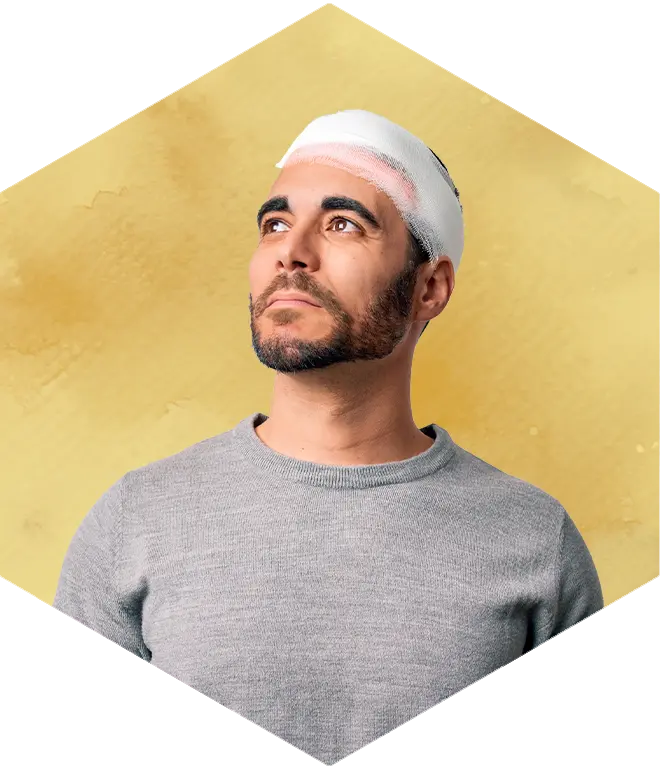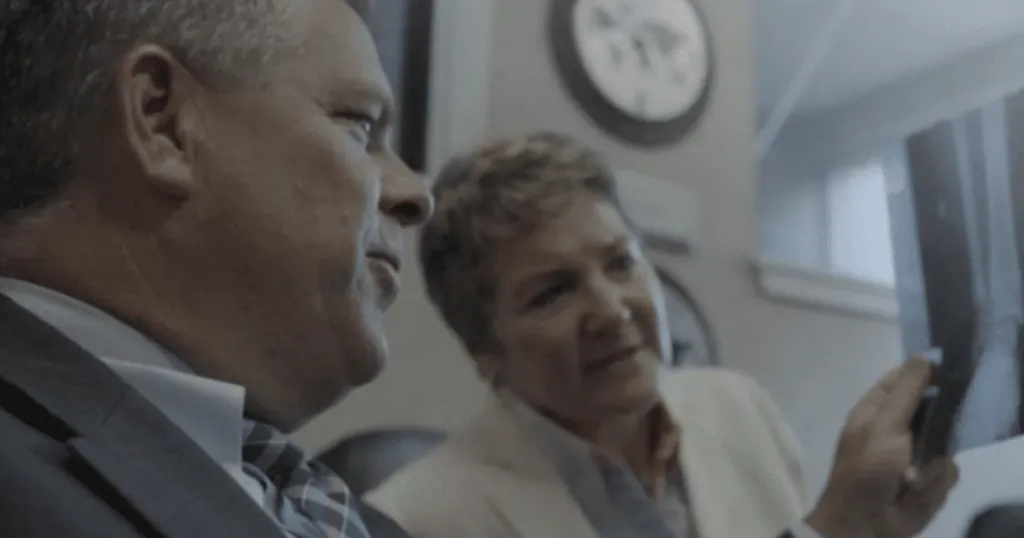Rhode Island Car Accident Lawyer
Don’t let a car accident in Rhode Island derail your life. Marasco & Nesselbush’s Rhode Island car accident attorneys have the expertise to help you secure the compensation you deserve. Contact us now for a free consultation and take the first step toward recovery.
- Award-Winning Personal Injury Attorneys
- Over $200 Million Recovered for Our Clients
- Proudly Serving Rhode Island & Massachusetts
- No Fees Unless We Win – You’re Covered
Injured In A Car Accident In Rhode Island? Get A Free Consultation To See If You Have A Case
If you’ve been injured in a car accident, you may be wondering whether you have a case. At Marasco & Nesselbush, we offer a free initial consultation to help you understand your legal options—no obligation, no upfront fees.
Rhode Island insurance companies often make it difficult for car accident victims to get the compensation they deserve, and dealing with them alone can be overwhelming. With over 25 years of experience, our team knows how to handle these challenges and fight for fair compensation. Whether your accident was minor or severe, you shouldn’t have to bear the burden of a negligent driver’s actions alone. Let us protect your rights and hold the responsible party accountable.
Don’t wait—contact us today for a free consultation and take the first step toward healing and financial recovery.
Why You Need To Hire An Experienced Rhode Island Car Accident Lawyer
After a car accident, dealing with insurance companies and legal complexities can feel overwhelming. Insurance adjusters may seem helpful, but their goal is to minimize payouts—not to protect your rights. That’s why hiring an experienced Rhode Island car accident lawyer is crucial to win your case.
A skilled attorney will gather evidence, negotiate aggressively with insurers, and fight for the maximum compensation you deserve. Without strong legal representation, you risk accepting a lowball settlement that won’t cover your medical bills, lost wages, or long-term recovery costs.
An experienced lawyer understands the tactics insurance companies use to delay or deny claims and will ensure your rights are protected. They will handle the legal complexities, from filing paperwork to representing you in court if necessary, so that you can focus on recovery.
Without proper legal guidance, it’s easy to make mistakes that could reduce your settlement. Having a Rhode Island car accident attorney by your side helps you avoid common pitfalls and increases your chances of securing the highest possible settlement or verdict.
Why Trust Our Auto Accident Attorneys?
For over 25 years, our law firm has fought for Rhode Islanders injured in car accidents, securing millions in life-changing settlements. Our unique approach to car accident cases sets us apart in Rhode Island. Here’s what makes us different:
- Tailored Legal Strategies: No two accidents are the same, and neither are our legal plans. We don’t just follow a one-size-fits-all strategy; we take time to review your case, understand your unique situation and build a strategy tailored to your specific needs.
- Deep Local Knowledge: With a deep knowledge of Rhode Island’s roads and legal landscape, we know how to navigate the complexities of your case effectively.
- Compassionate Client Care: We do more than handle legal matters; we provide personalized guidance and unwavering support to help ease your stress during this difficult time.
- Innovative Legal Techniques: Using the latest legal technologies, expert analysis, and strategic negotiation methods, we work efficiently and effectively to maximize your compensation and achieve the best possible outcome.
Our results speak for themselves:

- A $6,200,000 million settlement was secured for the passenger in a rollover vehicle accident who sustained catastrophic injuries in a rollover crash caused by a distracted driver.
- $4,500,000 million was recovered for a client who sustained a traumatic brain injury in a car accident.
- $1,400,000 was won for a family whose son tragically passed away after sustaining a brain injury in a high-speed crash.
Our attorneys have repeatedly taken on tough cases, going beyond standard insurance payouts to fight for true justice and help you get fair compensation. With our client-focused approach, you can trust that your case is in experienced, capable hands.
Common Types Of Car Accident Cases We Handle In RI
Choosing an attorney who can effectively handle all types of car accident cases is crucial when seeking legal representation. Our team at Marasco & Nesselbush has the experience to handle a variety of car accident cases in Rhode Island, including:
- Accidents with commercial vehicles
- Uber & Lyft accidents
- Distracted driving accidents
- Drunk driving accidents
- Failure to obey traffic laws
- Road rage accidents
- Speeding accidents
- Teen driver accidents
- Uninsured motorist accidents
- Head-on collisions
- Rear-end collisions
- Rollover accidents
- Sideswipe crashes
- T-bone accidents

Possible Auto Accident Injuries
Car accident injuries can range from minor to severe, but regardless of the severity, seeking medical attention immediately is crucial. Our experienced accident attorneys are here to help you—whether it’s gathering medical records or ensuring you receive the treatment you need to recover.
We’ve represented victims who have sustained a wide range of injuries from car accidents, including:
- Broken bones
- Back injuries
- Neck injuries
- Leg injuries
- Facial injuries
- Head injuries
- Traumatic brain injuries
- Spinal cord injuries
- Whiplash
Steps To Take Immediately After A Car Accident
If you’ve been in a car accident, knowing what to do next can make all the difference. Here’s a step-by-step guide to help you take the right actions after a collision.
Get To A Safe Location
If possible and safe, move your vehicle to the side of the road to prevent further accidents or blockages. If the accident occurred in low-visibility conditions or a busy area, turn on your hazard lights to alert other drivers.
It’s important not to leave the scene. Leaving the scene of an accident can be considered a hit-and-run, which is illegal and can lead to severe legal consequences, including criminal charges.
For more details about Rhode Island’s motor vehicle laws and requirements after an accident, visit the Rhode Island DMV.
Call The Police And Get Medical Help

Call 911 to report the accident. The police will investigate the scene and file a report, which will be important if you pursue a personal injury claim. If anyone is injured, request medical help immediately. Even if you don’t feel hurt, it’s crucial to get checked out, as some injuries may not show symptoms right away.
You can review what to do if you are involved in an accident on the Rhode Island State Police website.
Exchange Contact And Insurance Information
Exchange personal and insurance details with the other driver(s), including name, address, contact information, and insurance policy number. Do not discuss fault or make statements about the accident. Simply gather the information you need for later.
Record Information About The Car Accident Scene
Take photos of the vehicles, damages, road conditions, and any visible injuries. Also, note the time, date, location, and any other relevant details. This documentation can be vital for any future claims.
Call Your Insurer And A Lawyer
Contact your insurance company to report the accident. They will guide you through the claims process. Additionally, call a Rhode Island car accident lawyer for legal advice, especially if injuries or significant damages are involved. A lawyer can help protect your rights and maximize your compensation.
For more on Rhode Island car accident lawsuits, check out our comprehensive guide on car accident lawsuits.
Car Accident Laws And Local Resources In Rhode Island
Understanding Rhode Island’s traffic laws and local resources is crucial if you’ve been involved in a car accident. Whether you’re in Providence, East Providence, Woonsocket, Wakefield, or Warwick, knowing your rights and the proper steps to take can make a significant difference in your recovery and legal process.
Local Laws
- Rhode Island follows a pure comparative negligence rule, which means you can still recover compensation if you are partially at fault. However, your compensation will be reduced in proportion to your fault.
- Distracted driving, such as texting while driving, is illegal and can lead to serious consequences, including fines or accidents.
- Drivers are required by law to carry auto insurance to cover damages in the event of a collision.
Reporting Requirements
Accidents resulting in injuries or significant property damage must be reported to the local police immediately. You are also required to file an accident report with the Rhode Island DMV within 21 days of the incident. Be sure to obtain a copy of the police report for your insurance claims or any potential legal matters.
Local Resources
If you’ve been involved in a car accident, these local resources are available to assist you:
- State of Rhode Island Department of Motor Vehicles
- Rhode Island State Police
- Providence Police
- East Providence Police
- Wakefield Police
- Warwick Police
- Woonsocket Police
Local Statistics
According to Forbes Advisor, Rhode Island is one of the most dangerous states for drivers:
- 72% of fatal accidents in Rhode Island are attributed to either drunk or distracted driving.
- Although Rhode Island has seen a 6% decrease in fatalities, 84% of accidents are still caused by negligent drivers.
According to the National Highway Traffic Safety Administration,
- Rhode Island saw 72 fatal crashes in 2022, compared to 52 deaths in 2022.
- Rhode Island’s traffic death rate has increased from 0.69 in 2022 to 0.89 in 2023.
Being aware of local laws and resources helps ensure you’re properly prepared to navigate the aftermath of an accident.

Contact A Rhode Island Car Accident Lawyer For A Free Case Evaluation
If you or a loved one has been injured due to someone else’s negligence, don’t wait to seek help. Contact a car accident lawyer in Rhode Island today for a free, no-obligation consultation and take the first step toward justice.
FAQs
What damages can I recover after a car crash in Rhode Island?
After a car accident in Rhode Island, you may be eligible to recover damages for medical expenses (including future medical treatment and rehabilitation), property damage, lost wages (including loss of future earning potential), and pain and suffering. The exact amount depends on the severity of your injuries and the circumstances surrounding the accident.
Who is liable for a car accident in Rhode Island?
In Rhode Island, liability for a car accident is typically determined by who was at fault. If another driver was negligent, such as running a red light or driving under the influence, they may be responsible for your damages. In some cases, more than one party may share liability, including vehicle manufacturers or government entities responsible for road maintenance.
Can I claim compensation for pain and suffering after a car accident in Rhode Island?
Yes, in Rhode Island, you can claim compensation for pain and suffering caused by your injuries. This includes physical pain, emotional distress, and loss of quality of life. The amount of compensation depends on the severity of your injuries and how they affect your daily life.
Can I receive compensation for lost wages due to a car accident in Rhode Island?
Yes, if your injuries from a car accident prevent you from working, you may be able to claim compensation for lost wages. This includes past lost wages and, in some cases, future lost earnings if your injuries impact your ability to work long-term.
Should I call a lawyer or insurance first?
It’s advisable to contact a lawyer first before speaking with the insurance company. A car accident lawyer can protect your rights and ensure you don’t inadvertently say something that could harm your claim. They will also help guide you through the insurance process to maximize your compensation.
How soon after the accident should I contact an auto accident lawyer near me?
You should contact an auto accident lawyer near you as soon as possible after the accident, ideally within 48 hours. The sooner you seek legal help, the better your chances are of gathering evidence, negotiating a fair settlement, and ensuring you meet all reporting requirements under Rhode Island law, such as filing an accident report with the DMV within 21 days.
Fill out this form below to get started.
If you think you may have a case, contact us now for a FREE consultation
"(Required)" indicates required fields


